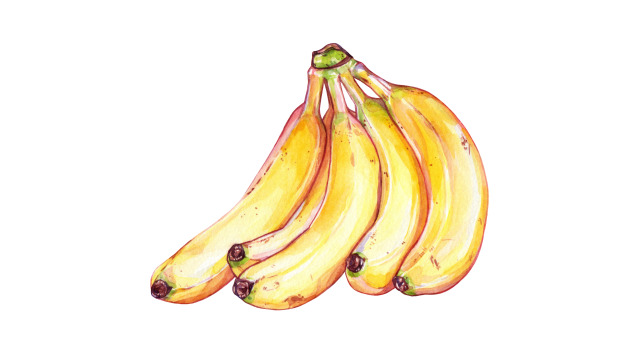Sports Nutrition: Peak Performance

Tennis star Venus Williams, Olympic track athletes Edwin Moses and Carl Lewis, and Indian cricketer Virat Kohli have shown that plant-based diets provide enough fuel for winning champions. There is a growing list of celebrated athletes who have adopted vegan or plant-based diets, and found improved performance and quicker recovery from injuries.
Experts recommend that athletes and fitness enthusiasts focus on consuming a balanced diet that provides them with all the essential nutrients required for energy production, muscle repair, and growth. While meat-based diets are often touted as the go-to for fitness and strength training, plant-based foods offer excellent sources of nutrients that can help you reach your fitness goals.
Tennis champion Karman Kaur Thandi, who trains at Roundglass Sports Academy says, “A diet that is balanced and devoid of processed foods offers stamina and strength and helps me in recovery.”
Nutrients for Endurance Training
Ironman triathlete Brendan Brazier, author of Thrive and an expert on plant-based performance nutrition, speaks about “biological debt” or the “energy-depleted state that North Americans frequently find themselves in.” In his book, he explains the importance of two types of energy: one obtained from stimulating drinks and ingredients like coffee or refined sugar, the other via nourishment from whole foods and plants needed for optimum health, especially for those who engaging in fitness activities and sports.
Plant-based nutrition can provide a wide range of essential nutrients that athletes need to fuel workouts and support recovery. Here are five significant factors to consider when it comes to plant-based nutrition for athletes:
Protein: Protein is essential for building and repairing muscle tissue, and athletes need more of it than sedentary individuals. Proteins help to support the immune system and aid in the recovery process. Plant-based sources of protein include legumes, nuts, seeds, whole grains, tofu, tempeh, and soy products.
Carbohydrates: Carbohydrates are the primary fuel source for the body during physical activity. They provide the energy needed for high-intensity workouts and help replenish glycogen stores in muscles. Athletes and fitness enthusiasts need to consume adequate amounts of carbohydrates to support their energy needs. Whole grains, fruits, vegetables, and legumes are all excellent sources of carbohydrates.
Healthy Fats: Healthy fats, such as omega-3 and omega-6 fatty acids, are important for maintaining cell membranes and regulating and reducing inflammation, supporting joint health, and improving brain function. Fats provide the body with energy and help support hormone function. They also aid in the absorption of fat-soluble vitamins. Plant-based sources of healthy fats include nuts like almonds, seeds, avocados, and certain oils like olive oil.
Micronutrients: Athletes and fitness enthusiasts need to consume adequate amounts of vitamins and minerals to support their energy needs and performance and prevent nutrient deficiencies. Vitamins and minerals play a vital role in energy production, muscle function, and recovery. Plant-based sources of micronutrients include leafy greens, berries, nuts, seeds, dairy products, and whole grains.
Hydration: Adequate hydration is crucial for athletes to maintain performance and prevent dehydration. Water is the best source of hydration, but watermelon, cucumbers, and leafy greens can also contribute to hydration levels.
Nutritionist Keri Romerdahl adds, “For pre-and post-workout try to avoid commercially marketed 'sports drinks,' or caffeine-packed energy drinks as these tend to be artificially sweetened and colored. If you want a natural way to add some pep to your step pre-workout, try consuming beet juice. The nitrates in beets are converted to nitric oxide in the body and can help improve blood flow, muscle contraction, and mitochondrial activity. A great post-workout beverage is coconut water, which is full of potassium and electrolytes, to replace those lost from sweating.”
Hydrate with Krystal Mack’s switchel while training.
Food for Fitness
Consuming processed foods, eating disorders, and diets for special needs are problems to deal with while building nutrition in both children and adults. Several chief factors can impact sports nutrition for athletes, including:
Age and Development: Nutritional needs vary depending on age and developmental stage. Younger children may require more calories per pound of body weight than older children due to higher metabolic rates. Adults may require more protein and fiber.
Energy Balance: The balance between energy intake and energy expenditure is critical in determining growth and development. It is essential to provide enough calories to fuel physical activity without causing excess weight gain or loss.
Macronutrient Intake: While training the body requires adequate amounts of carbohydrates, proteins, and fats to support growth and development. However, the ratio of macronutrients may differ depending on the intensity and duration of individual athlete and the levels of their physical activity.
Education and Support: Both kids and adults require education and support to make healthy food choices and develop healthy eating habits. Parents, caregivers, and coaches can play an essential role in promoting healthy eating behaviors and encouraging those who are training to make healthy food choices.
Plant Power
According to Matt Frazier, author of The No Meat Athlete Cookbook, whole plant foods provide fuel for optimal performance alongside training. His journey to run the Boston Marathon had him “hooked on whole foods,” that contribute toward “fitness, recovery, and moving toward an ideal weight.” His book of recipes focuses on whole plant foods for balanced nutrition:
Legumes: Legumes such as lentils, chickpeas, and beans are an excellent source of protein, fiber, and complex carbohydrates. They are also low in fat and cholesterol, making them a great addition to any fitness diet.
Nuts and Seeds: Nuts and seeds provide healthy fats, protein, and fiber. They are also rich in vitamins and minerals such as vitamin E, magnesium, and zinc, essential for muscle repair and growth.
Whole Grains: Whole grains such as rice, quinoa, and whole-grain bread contain complex carbohydrates, fiber, and essential vitamins and minerals.
Fruits and Vegetables: Fruits and vegetables are rich in vitamins, minerals, and antioxidants, which help support overall health and wellbeing. They are also a great source of carbohydrates and fiber, making them an excellent addition to any fitness diet.
Meals for Fitness Goals
Renowned vegan ultra-endurance athlete and author of The Plant Power Way, Rich Roll offers meal plans for different kinds of athletes and people who pursue different forms of physical activity and training. Roll says adopting a plant-based lifestyle, “will undoubtedly empower you to conquer even your most audacious athletic quest.”
Here are some options for pursuing your fitness goals:
Breakfast: A plant-based breakfast could include a smoothie made with almond milk, spinach, banana, and chia seeds or oatmeal topped with fresh fruit, nuts, and seeds.
Lunch: Try a lentil salad with mixed greens, cucumber, and tomato or a veggie burger made with sweet potato, black beans, and quinoa.
Snacks: Vegetarian snacks could include a handful of mixed nuts and dried fruit, a piece of fruit with almond butter, or carrot sticks with hummus.
Dinner: Consider grilled tofu with a side of roasted vegetables, or a stir-fry made with brown rice, mixed vegetables, and tempeh.
Hydration: Water infused with vegetables, fruits, and switchels are good for hydration.
The turmeric tempeh stir fry by JL Fields is a vegan protein dish.
To perform at your best in sports and physical activity, it is essential to fuel your body with the right nutrients. The right nutrition is essential for the next champion and fitness buff.
Key Takeaways
- Plant-based diets aid athlete recovery.
- The right foods help you get fit.
- Make smart food choices for stamina.





